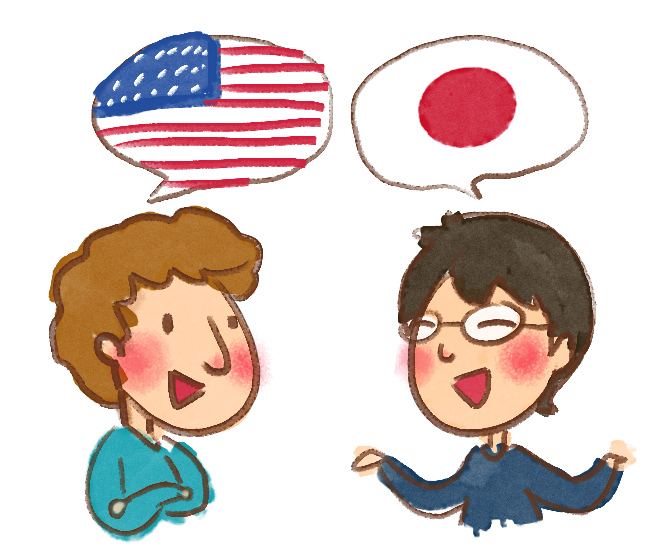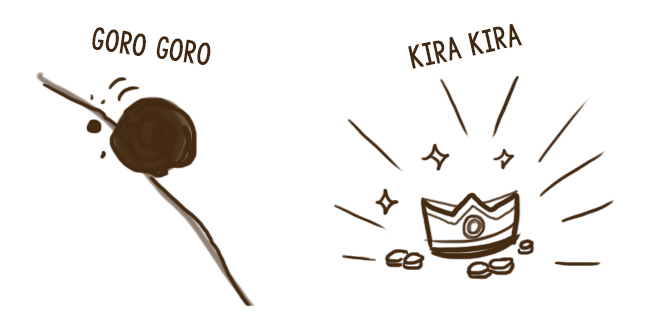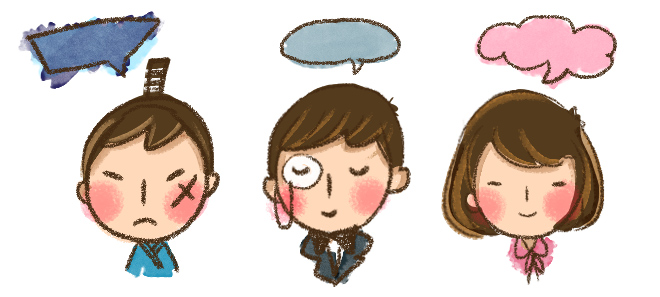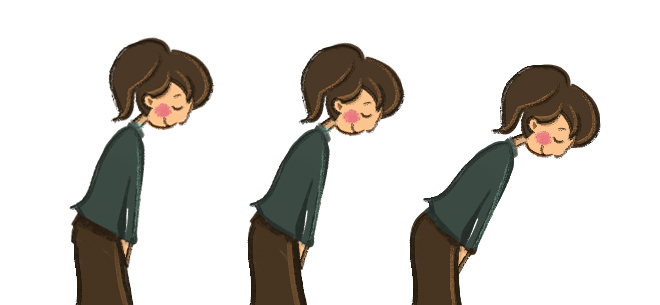Hi ! We hope this site helps you! ٩(ˊᗜˋ*)و As an Amazon Associate, we earn from qualifying purchases without additional cost. Click to read more about our Privacy Policy or Affiliate Disclosure
CHARACTERISTIC OF JAPANESE LANGUAGE
1. Overall, the sentence structure & elements is somewhat different than in English.

Japanese sentence are made in a way which make the structure is much more flexible than English. Below is a few tips & introduction about Japanese grammars.
A. Try to ignore English grammar vocabulary & pattern.
In English, the common pattern would be SUBJECT – ACTION/PREDICATE – OBJECT. But while learning Japanese, it’s best to totally ignore the English grammar vocabulary & pattern such as SUBJECT, PREDICATE, OBJECT, etc since it’s quite different in Japanese and you might be confused if you try to find a similar equivalent to the English grammar vocabulary.
B. Introducing Topic
Topic is the key to understand Japanese language. Let’s say you want to talk about yourself, then the topic is [YOU]. Or you want to talk about yesterday, then the topic would be [YESTERDAY]. Talking about holiday? The topic then is [HOLIDAY], so simple right!
A topic is very flexible and could be just anything/anyone.
In Japanese, there will be a particle that mark the topic of the sentence which is は [spelled as WA instead of normal HA]. So when you see a word followed by that particle…
Example: [something/someone/anything] は
You will know the sentence is about anything that is written before the は.
When the topic is already clear from previous conversation, you can safely remove it from the sentence you’re about to say.
C. It’s considered rude to call somebody as YOU
When talking to people directly in normal situation, it’s considered rude to called them by YOU. Called them by their name or just asking the questions if the topic is already clear.
(X) Do you eat cake? *considered rude
(O) Do [their’name] eat cake?
(O) Eat cake? *if it’s already clear that you’re asking him/her
D. Some English elements doesn’t exist
Here are some English elements which is not exist in Japanese.
…………………………………………..
Topic is not equivalent with Subject
Topic is topic. To treat/understand it as subject, will confused you later on. In English translations, it is indeed that usually the topic will become the subject of sentence. But that is because to literally translate the Japanese word will make the translation look weird, therefore it requires modifications to some extent.
English copula only exist in English
English copula words such as is, am, are, was, were doesn’t exist here.
So there would be no I am or She were in Japanese…
No difference in word with different pronoun
In english… he/she/it eats while I/they/you eat.
In japanese, there is no different, all would be just eat!
No plural
In English, we add s/es to inform that the object is more than one.For example, it is 1 apple and 8 apples. In Japanese 8 apples would be just 8 apple! No change in the word.
No a/an
No a cat or an apple. Just cat and apple.
No future tense
To show that the action will be done in the future, we add time details in the sentence such as next month, tomorrow, etc
…………………………………………..
When you see these elements in English translations, it’s there to make the sentence grammatically correct in English.
Here’s an example…
A Japanese literally translated sentence would be:
About tom, eat ten fish
But it doesn’t make sense in English, so in the translation it is modified to be grammatically correct in English and becomes Tom eats ten fishes.
2. Be as vague as you can!

Japanese love to be vague in their way of talking. So once the speaker thought that the subject/object is clear enough, it can be removed.
For example, in English introduction, you may say…
I am Tom.
I am a student.
I am 20 years old.
Please to meet you all
In Japanese, it would be weird to repeat the I in the sentence after the first one since the topic of sentence is already obvious. So the better way would be like this… It might sounds weird in English, but it’s perfectly okay & recommended in Japanese.
I am Tom.
A student.
20 years old.
Please to meet you all.
3. There are words for sounds/movement of action!

This type of word is called onomatopoeia. It’s quite funny. Basically it’s a word that trying to describe sounds/movement of action.
Here are some example:
A heavy object rolling would be “GOROGORO”
A sparkling things would be “KIRAKIRA”
4. Different way of saying things depending on role & formality

Japanese has a very varied way to express things. Different role might express using a completely different way of talking. If you read/watch a non-translated Japanese manga/anime, you will be able to see how they talk differently depend on their role. For example, the way butler talks, samurai talks, pirate talks, waiter talks, or family member talk to each other will be very different!
For example,in English, you only have one pronoun. In Japanese,depending on the formality level, there are more than 1 way to say pronouns. The word you chose to use will make you seems more manly, girly, or maybe rude.
5. Japanese formality is quite complex

Japan is serious about respecfullness… Even bowing have a different set of degree, imagine that!
Basically Japanese range from very informal (very rude) to very formal (very respectful)
The very formal way of talking using a very different set of vocabulary & grammar rules. They even have specific books to teach how to talk this Japanese respectful language. So it’s quite complicated & very different way of saying things.
There are 2 ways to speak respectfully. One is to elevate the other person level (honorific). And the other would be to lower down your own level (humble). But fear not! Currently, you only need to learn about the standard POLITE and CASUAL way of talking.
Although for now,the only rules you need to know for now would be to talk casually to family member/close friends and politely to anyone else, please note that it’s very important to be able to differentiate different way of formality level.
You will get a grasp of the humble & honorific bit by bit later on when you are able to start watching tv / reading newspaper / noticing the way a waiter/storeclerk talk to you.
Yes, Japanese respectful language is complex… Buuut!! The simplest form of Japanese sentence is very very simple!
Let’s says that someone is looking at you, eating your apple.
In English, you need to say the subject & object to be grammatically correct.
Someone: What are you doing?
You: I’m eating apple (duh!)
In Japanese it’s perfectly okay to reply with just the action since the subject & object already clear enough
Someone: What are you doing?
You: eat…
• Back to top
• Back to Lessons Index

One comment